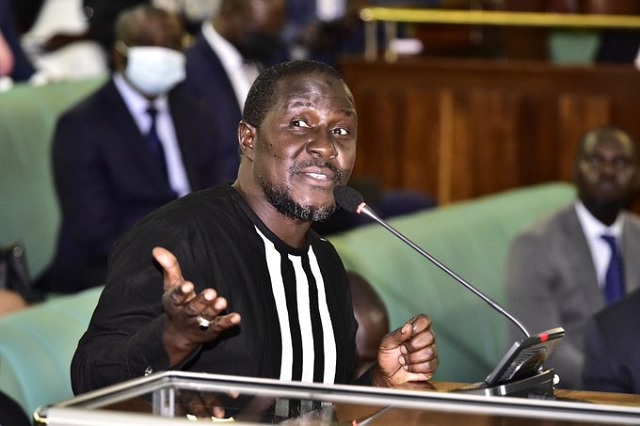
Kampala, Uganda | THE INDEPENDENT | Local manufacturers and legislators have called on the government to support the Anti-Counterfeit Goods Bill 2023, saying that this will save trillions of Shillings in state revenues.
Bugiri Municipality MP Asuman Basalirwa was granted leave in July 2013, to introduce a Private Member’s Bill entitled the Anti Counterfeit Goods Bill, which seeks to ban counterfeit goods that infringe on intellectual property rights, focusing on copyrights and trademarks.
In March, he was allowed to conduct public consultations on the Bill which also introduces penalties for trading in counterfeit products and grants Uganda Revenue Authority and Uganda National Bureau of Standards, powers to confiscate illicit products.
Speaking at the final consultative meeting held in Kampala on Wednesday, Basalirwa assured that when the law is passed, it will cater for all the gaps left by the existing laws like the UNBS Act, the copyright laws and others, which neither define Counterfeits nor provides adequate penalties.
He added that as part of the consultations, he discovered that Uganda doesn’t have a single uniform law that comprehensively deals with the subject of counterfeits.
“So, one of the reasons for this piece of legislation is to have, in this country, a piece of legislation that is unique to counterfeit and standards in one way or the other; number two that we don’t have a comprehensive and good definition of what counterfeit is!”
Basalirwa says the bill is comprehensive because it deals with manufacturing, production, labelling, packaging, imports and exports, among others. After all, illicit products put pressure on the credibility of the standards.
“Counterfeit is growing different manifestations, different formations and yet the existing pieces of expression are not in themselves growing that so the vice is growing the laws are not growing, the laws have remained static,” Basalirwa says.
He added that the aim is to ensure that counterfeiting becomes a very costly business to the perpetrators, through efficient prosecution and laws.
Fred Muwema, the Chairman of the Anti-Counterfeit Network and facilitator of the consultations, appealed for concerted support for the proposed law because it has negative effects on everyone in one way or another.
“But we are seeking your views also as well because this is the law for the people, it’s the People’s law, this is by-partisan law whichever political party belong to, whatever your religion you all buy the same on the Ugandan market which is a person by counting.”
Muwema describes the issue of counterfeits and substandard products as “the biggest human existential threat that we have”, adding that the issue compounds all the already existing problems including climate change, terrorism and the environment.
Agnes Ssali, the Company Secretary at Uganda Breweries Ltd says that the beverages industry in Uganda is one of the most affected, as half of the Counterfeit and illicit products are beverages, especially alcoholic. Generally, reports show that producers lose at least 6 trillion Shillings annually to the illicit market.
“So many forms of counterfeit in terms of product, in terms of the packaging, the labelling, IP (Intellectual Property) infringement, it takes all sorts of forms,” she says, adding that the counterfeiters are becoming more complex.
This is also because the Counterfeit industry is very lucrative – between 3 and 3.5 trillion dollars globally, while Uganda loses 1.7 trillion shillings annually in government revenue.
“As we innovate on our products, the counterfeiters are trying to keep up if sometimes not becoming even more advanced than we are. So it is a big business and people putting a lot of money behind it is a big investment for them,” says Ssali.
Welcoming the proposed laws, Ssali hopes it will enhance effective prosecution. According to the Economic Policy Research Centre, close to 40 per cent of Uganda businesses say that they suffer due to unfair competition from counterfeiting and cheap substandard products.
*****
URN
 The Independent Uganda: You get the Truth we Pay the Price
The Independent Uganda: You get the Truth we Pay the Price



